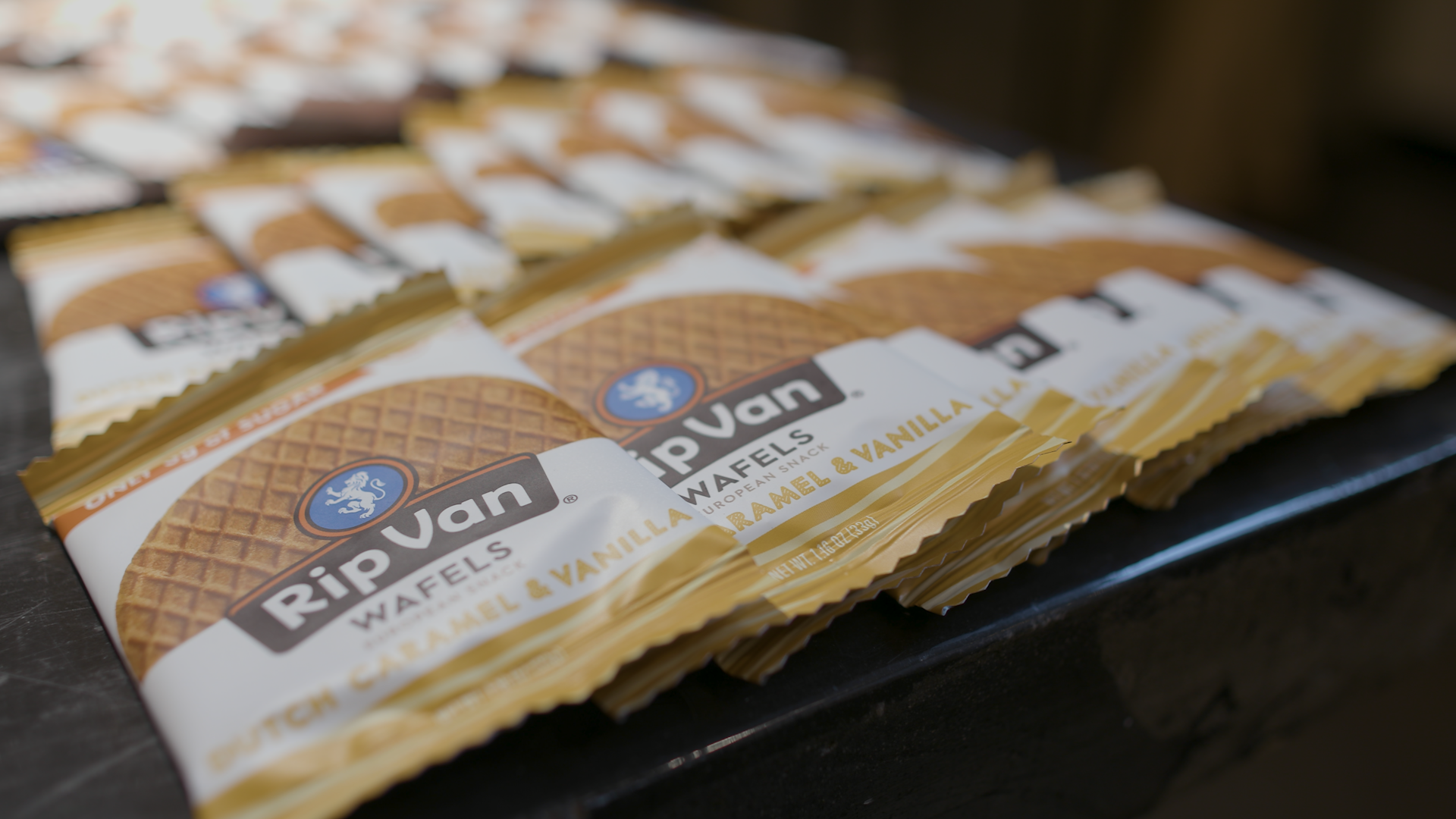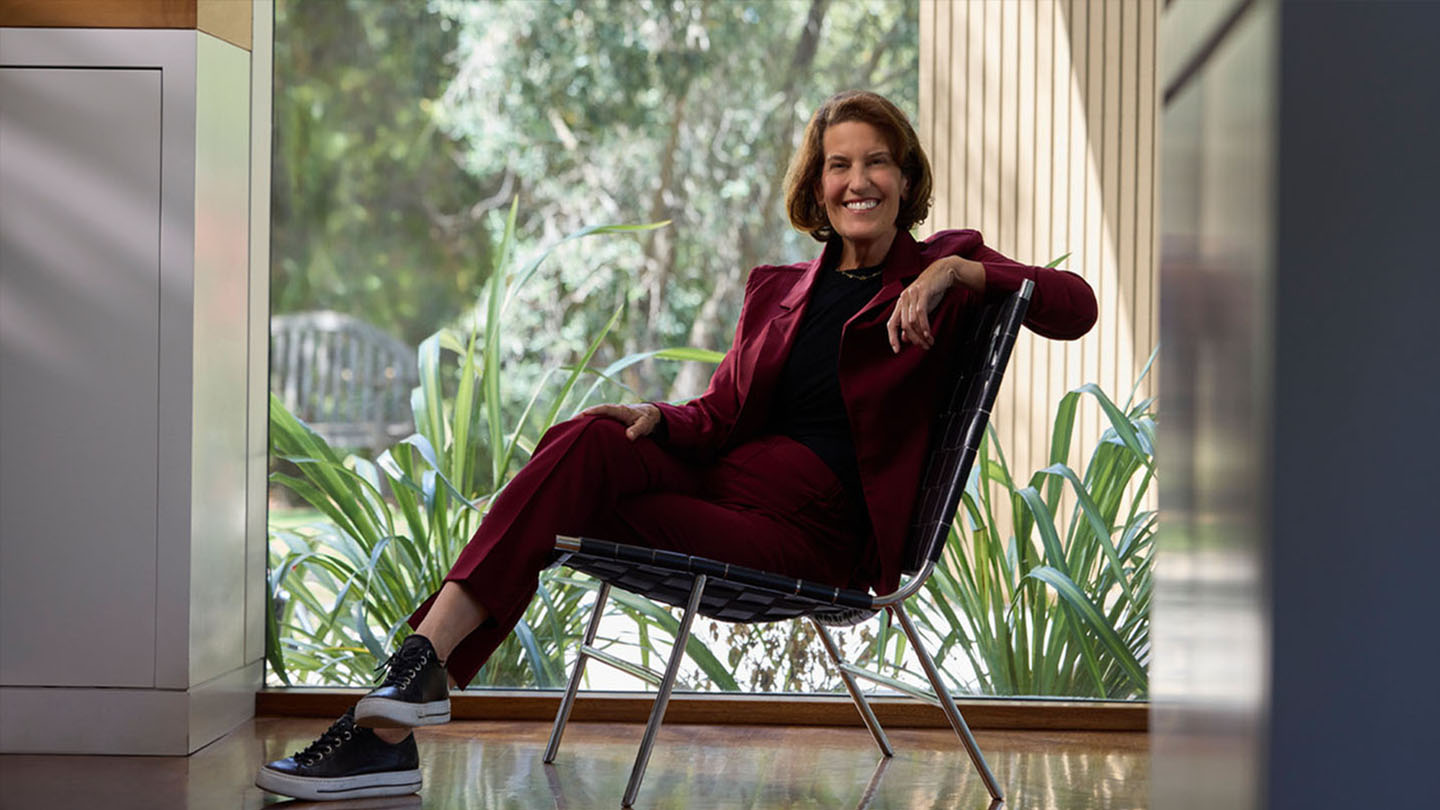
For Marco De Leon, it all began at a college party. A friend approached and said he was looking for a co-founder. Was he interested?
“I think that he had asked that question to probably 20 to 30 people. And they had all said, ‘You’re crazy.’” De Leon didn’t know anything about Dutch stroopwafels, the snack business or running a startup. But that night, sensing an opportunity, he said, “Let’s just see what we can do.”
That was in 2011. Since then, the partners’ healthier twist on a European snack food has grown from sales on the Brown University campus to major customers across the US and Canada.
A foreign concept
From the beginning, De Leon and his co-founder, Rip Pruisken, were committed to a single product: stroopwafels, a traditional Dutch treat made of two cookie-like layers sandwiching a caramel filling. In fact, his Amsterdam-raised co-founder was so devoted he changed his first name from Abhishek to Rip, to honor the brand name.
Early customers at Brown loved the wafel—but when De Leon and Pruisken expanded into markets off campus, it was a harder sell.
The challenge was getting people to try the wafels for the first time. Once they tried the snack, they were often hooked. So the two founders focused their efforts on getting that first sample into buyers’ hands.
A Wafel worth the wait
There was one particular set of hands Pruisken and De Leon were focused on: Starbucks CEO Howard Schultz. Early on, the two men followed Schultz across the country on his book tour, determined to share a sample. After traveling from New York to Los Angeles, they finally gave him one. Then they followed up again and again before eventually landing a meeting.
“It took us three years to get in the room with the right person,” De Leon says. Afterward, it took two short months to seal the deal, taking the number of locations selling Rip Van Wafels from 300 to more than 12,000. The difference, De Leon says, was “night and day.”
"We went in for a meeting that was supposed to be 15 minutes, and it turned into a three-hour meeting. We were really able to build the relationship, tell our story, share the vision." - Marco De Leon, Co-Founder, Rip Van Wafels
Grappling with growth
Flavia Bigi, a banker with J.P. Morgan, notes that consumer goods startups in particular have to be prepared to scale quickly when that three-hour meeting comes.
“You never know when you’re about to get that chance meeting with the perfect retail partner or long-term investor, or a viral product post that will stretch your team to its limits,” Bigi says. “It’s critical to have the right staff and leaders in place—not just for today’s operations, but for tomorrow’s growth.”
In Rip Van’s case, Flavia helped ensure the founders had financial guidance and access to potential investors, in addition to the treasury solutions they needed to scale.
As Rip Van’s distribution grew, the business became more complex. The company sold wafels to a wide array of outlets, including American Airlines and Whole Foods. Four years after launch, the founders knew it was time to bring in help.
“There was a speed at which we could do things ourselves, but we felt that if we could bring in someone who’s really better than us at managing and leading the team, we could really accelerate that growth significantly,” De Leon says.
Today, with the support of Jim Low as president and other key advisers, Rip Van continues that acceleration. Their journey has taken them from cooking wafels in a college dorm to breaking into a highly competitive category—and they’ve only just begun.
Find more inspiring founders’ stories at jpmorgan.com/startups.







